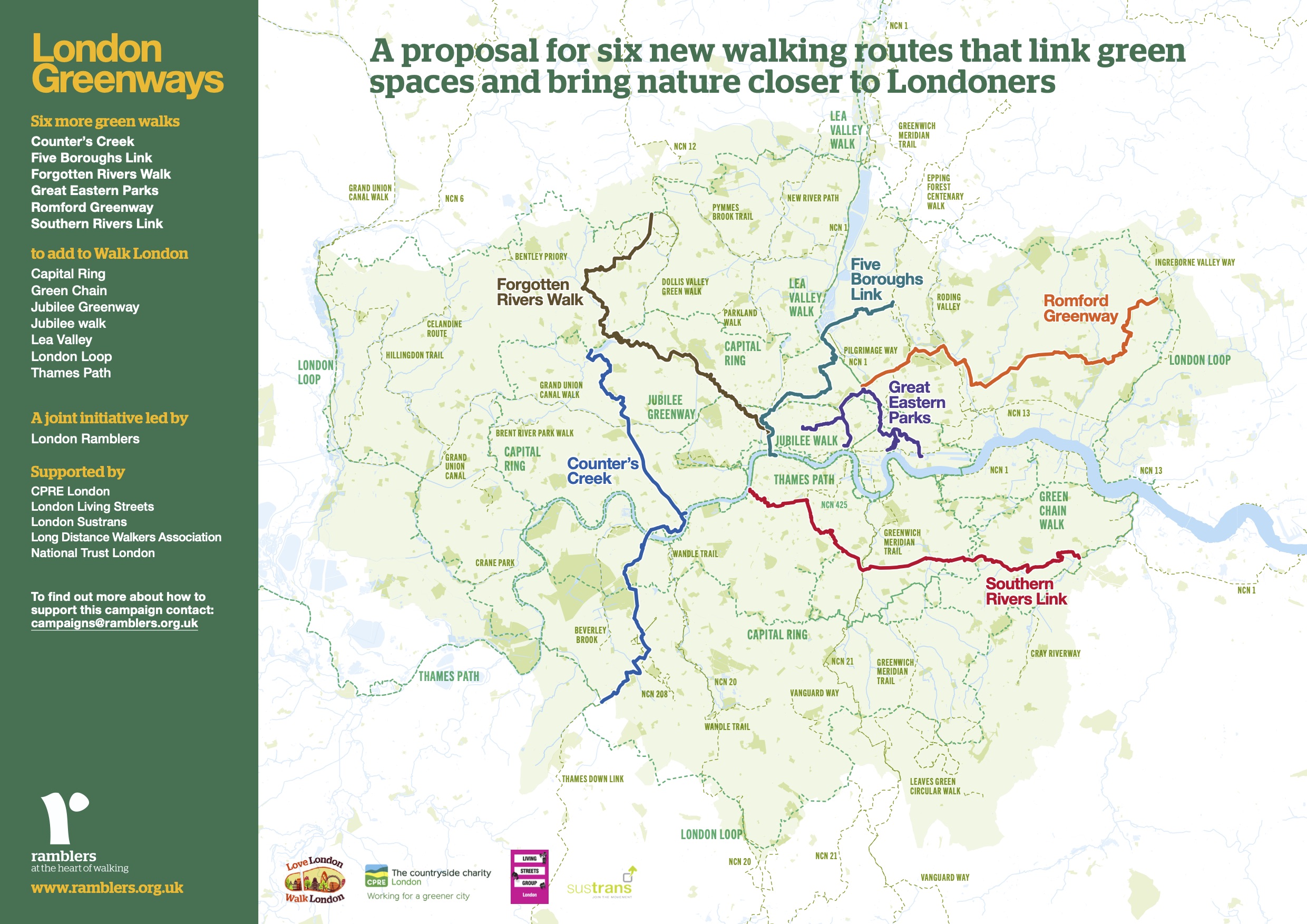April 2021
As the saying goes – if you don’t have your health, you don’t have anything. Indeed, the past year has been an extended lesson in how public health and wellbeing underpin everything else.
The health and wellbeing of Londoners varies widely and the capital is in the unenviable position of having the widest health inequalities in England. More than half of Londoners are overweight and many are not sufficiently active; only 34% of Londoners walk or cycle the recommended 20 minutes per day. Too many live in areas deficient in nature-rich green space; less than half regularly visit green spaces. Noise and air pollution from vehicles damages health and reduces enjoyment of public space. Access to affordable, high quality, fresh food remains too difficult for many communities.
The next Mayor of London has an opportunity to build back better from the pandemic, in ways that benefit the health of all Londoners. The 'More Natural Capital' coalition is calling for action to boost public health, including improvements to the Central London Footways Network; the expansion of the green ‘Walk London’ walking network; more parks and tranquil green spaces; and support for the preparation of food strategies in every Borough.
Improve the Central London Footways Network
The past year has seen a huge increase in walking. More than half (57%) of people say they now go on more walks for exercise or walk for longer than they did before the pandemic. As lockdown ends, we need to build walking into our daily routines for work, shopping, going to cafes, school, the GP or the Underground or Overground station. This is beginning to happen. Almost a third (31%) of Londoners chose to walk instead of using a different mode of transport last year.
To achieve a large scale transformation walking and other forms of active travel have to be more pleasant and easier than other options. Low Traffic Neighbourhoods have a huge role to play, and so do high quality walking links. To this end, Footways has been established - a network of walking routes connecting key destinations such as main stations by attractive, low pollution, often historic streets. The project began in Central London and a digital and beautiful paper map have been produced: https://footways.london/. The routes are also a tool to focus on where infrastructure improvements are needed and to demonstrate how quick it is to walk, e.g. from Euston to the British Museum takes 19 minutes on foot, 17 by taxi.
Now Footways is spreading out to the rest of London - at a very opportune time - as many people will continue to work at least for part of the time from home, and will want to walk to local facilities.
Expand the green ‘Walk London’ walking network
Many people have taken up walking for leisure close to home during the pandemic, seeking out green routes and spaces to boost their physical and mental health. Yet while millions have enjoyed the benefits of walking in local green spaces, the past year has also highlighted that many people do not have easy access to nature. Parks and green spaces are unevenly distributed, meaning some Londoners must travel further to reach them. Green, wider open spaces on the outskirts of London are often difficult to reach on foot, and many streets lack green features, such as trees and plantings, that encourage walking and help everyone to connect with nature every day.
Now more than ever, we need to make it easier for everyone to connect with nature by providing better, greener walking routes in London. We’re asking for the next Mayor to commit to the creation of at least 6 new, high quality green walking routes, to add to the family of existing green routes, including the Thames Path and London Loop. New ‘radial’ routes that link up green spaces are needed to create a coherent walking network that gives everyone the confidence to explore green spaces both within London and on its fringes.
Support food strategies for every Borough
Poor diets are a major contributor to poor health, increasing the risk of a number of long term health conditions including obesity, heart disease, diabetes and some forms of cancer. But access to affordable, high quality, fresh food remains difficult for many communities. Our manifesto calls for support for the preparation of food strategies and plans in every Borough. The strategies must incorporate good food retail and procurement policies to improve access to fresh food and champion healthier, plant-based diets.
These 3 practical, low cost measures proposed by the ‘More Natural Capital’ manifesto for the next Mayor of London could make a material difference to the health and wellbeing of all residents and provide a solid foundation for London’s recovery from the pandemic.
Kate Conto is Senior Policy Officer at the Ramblers and David Harrison is co-founder of Footways and vice-chair of London Living Streets.
Follow @RamblersGB, @FootwaysLondon, @LDN_LS and @AMoreNaturalCap.
To read all the blogs in this series that explores the issues in the 'A More Natural Capital' manifesto, click here or visit our dedicated twitter feed @AMoreNaturalCap. You can also learn more about the leading candidates' stance on environmental issues at the Mayoral Environmental Debate on Wednesday 21 April.
The opinions expressed in this blog are the author's and not necessarily those of the wider Link membership.






Latest Blog Posts